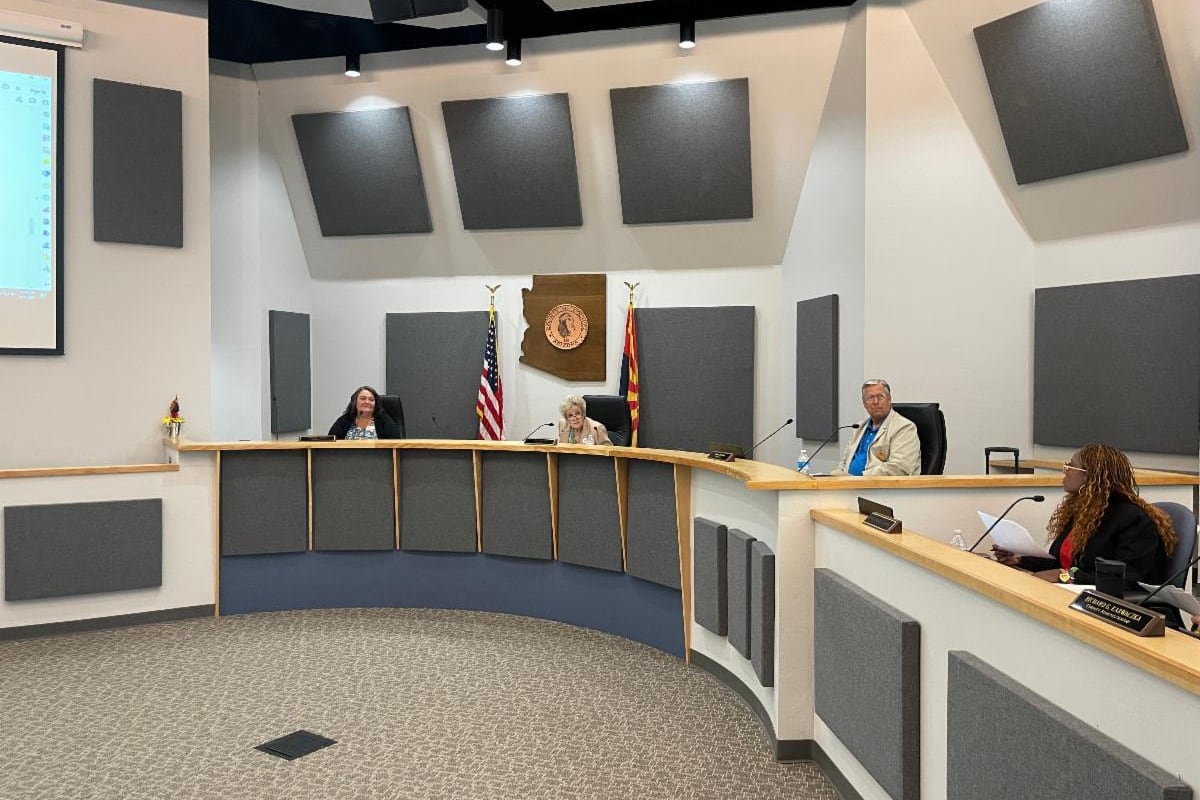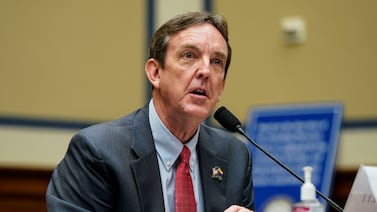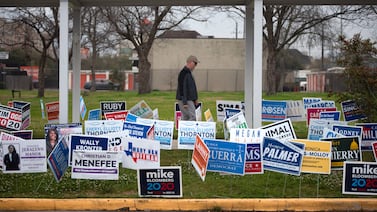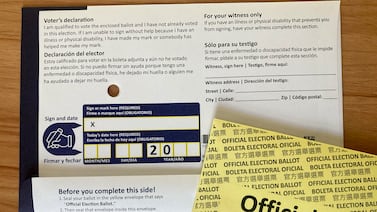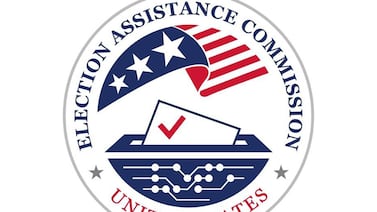Votebeat is a nonprofit news organization reporting on voting access and election administration across the U.S. Sign up for our free newsletters here.
Cochise County will only be able to work with one company to test security features on ballots in Arizona as part of a state pilot this year — and it’s not the company with political connections that pushed for the work.
Cochise County supervisors on Tuesday voted 2-1 against extending the time period for a $1 million state grant for the secure ballot paper that expired in May — this means County Recorder David Stevens’ proposed contract with Authentix will not move forward. Supervisors Ann English and Peggy Judd voted no, and Supervisor Tom Crosby voted yes.
The “no” vote means that Stevens will only be able to use supplies he had already ordered from Runbeck Election Services, which cost $187,500, to test watermarks on ballots as part of the pilot, and will not be able to hire Authentix and one other company that had applied separately for the work, ProVoteSolutions. An item on Tuesday’s meeting to approve a contract with the two companies was nullified.
Texas-based Authentix has partnered with former state Rep. Mark Finchem to try to make its security products mandatory on ballots across the country. A Votebeat investigation published earlier this month found that Stevens — a good friend of Finchem — appeared to have tailored the Cochise pilot to fit Authentix’s products.
Ballot security features include unique elements in the paper such as watermarks and special ink. Election skeptics see the features as a way to protect against fraudulent ballots and improve voter confidence, but some election technology experts say Cochise’s proposal would test features that were costly, excessive and potentially wouldn’t work in tabulation machines.
About a half-dozen residents of the southern Arizona county told the supervisors before the vote that they were opposed to the project because they thought it was unnecessary to add secure features to ballots — either because they didn’t believe there was widespread mail-in voter fraud, or because they didn’t believe it would solve the fraud they believe to exist. A few mentioned the connections between Stevens, Finchem and Authentix outlined in Votebeat’s story.
Al Anderson of Bisbee said he was opposed to “spending more money on a nonexistent problem” and the contract “reeks of being a shady backroom deal.” Sierra Vista resident Randall Limbach said adding the secure features on mail-in ballots he believes to be fraudulent is akin to “building a dam with sand.”
The decision not to contract with any more companies on ballot security features comes several months after the two Republican supervisors on the board, Crosby and Judd, spiraled the county into lawsuits and garnered national attention during November’s midterm election, when they proposed a plan to illegally hand count all ballots and refused to certify the county’s election in a timely manner. The supervisors were under pressure from far-right residents and leaders in the state who claimed without evidence that the election was fraudulent.
Supervisor Peggy Judd said in an interview after Tuesday’s meeting that she voted no because Stevens didn’t follow through on getting the grant off the ground, and because of the public comments from residents who were against contracting with Authentix and also residents who didn’t believe the contract would address their concerns with fraud.
“Honestly, I’m not sure it’s what we need.”
Judd made clear she respects Stevens and his contributions to elections, though.
The decision comes after supervisors decided on Tuesday morning to put the elections department back under the authority of the county manager, instead of under Stevens. Stevens had taken control of the department earlier this year after the controversy in November, which led to the resignation of former elections director Lisa Marra.
Jen Fifield is a reporter for Votebeat based in Arizona. Contact Jen at jfifield@votebeat.org.


